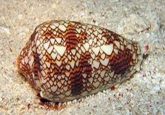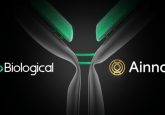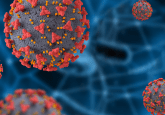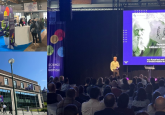SLAS Europe 2024 conference report

The Society for Laboratory Automation and Screening (SLAS; Oak Brook, IL, USA) held its fifth European conference in Barcelona, Spain on 17–29 May, attracting a diverse group of scientists, academic researchers and industry specialists from Europe and beyond. The event showcased a variety of cutting-edge laboratory automation technologies and screening solutions across the exhibition floor and featured an engaging program delving into the latest advancements in automation across the life science and biotech sectors.
Revolutionary lab automation and biotech innovation
Returning to Barcelona, a European hub of life sciences research & innovation, the conference included 109 exhibitors and 1185 registered attendees, representing over 40 countries. Delegates had access to scientific sessions, keynote presentations, discussion groups and new product demonstrations – all based around this year’s theme: revolutionizing life sciences innovation.
Opening the conference on Tuesday morning with an insightful keynote presentation, Luis Serrano, Director of the Centre for Genomic Regulation (CGR; Barcelona, Spain), delved into the innovative use of recombinant bacteria for in situ production and delivery of therapeutic molecules. In his talk, ‘Engineering of a human lung bacteria for treating lung diseases’, Serrano discussed the potential applications of a ‘Mycochassis’ – an engineered version of Mycoplasma pneumoniae – including targeting bacterial biofilms, treating lung inflammation by secreting anti-inflammatory cytokines and antibody expression for human therapy.
From there, the conference’s schedule featured three specialized tracks: Frontiers in technology, Screening applications & diagnostics and Shaping the future of therapeutics. These were in addition to new parallel presentation paths on Laboratory automation and screening and Data science and AI, and Topical Interest Groups to encourage more in-depth discussion around current trends in researchers’ respective fields.
Frontiers in technology
The surge in data from ‘omics, high-content screening (HCS), drug discovery and sample management has propelled the development of advanced algorithms rooted in big data analytics and machine learning/artificial intelligence. This dedicated track featured presentations from leading experts who are harnessing advanced technologies to significantly enhance laboratory screening, automation and analysis, spread across four insightful sessions.
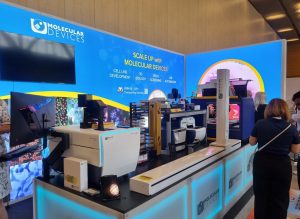
Molecular Devices booth at SLAS Europe 2024
The track opened with ‘AI & computation in healthcare’ and ‘Screening approaches to tackle challenging targets’, before leading into ‘Cellular technologies’, where Oksana Sirenko, Senior Manager of Assay Development at Molecular Devices (CA, USA) presented the results from automation and prolonged culture of 3D organoids. In her talk, Sirenko discussed how CellXpress.ai, a new, highly integrated organoid generation and culture instrument leveraging machine learning, facilitates automatic media exchanges and organoid monitoring, increasing productivity, throughput and reproducibility.
The session concluded with ‘Sample management technology’, including a presentation by Lennon Glass, Senior Associate Scientist at FMC (PA, USA) on how sample management and automation differ within the context of the agricultural industry. Taking into consideration the nature of the samples as well as the scale of operations, Glass highlighted the unique challenges encountered within agriculture, both in R&D and in sample management.
Screening applications & diagnostics
Providing a clear view on how diagnostics and screening applications are evolving across four sessions, this track hosted presentations on emerging topics, including new testing paradigms that are closer to patients (point-of-care or at-home testing), new automation technologies, sequencing of the human genome, and how AI and machine learning can help address global emerging threats such as anti-microbial resistance, antibiotic massive abuse and sepsis management.
In light of the heightened demand for improved screening and diagnostics post-Covid, Dimitris Tsiokos, CEO of bialoom (Nicosia, Cyprus), emphasized the need for point-of-care tests (POCT) that can quickly and accurately provide pathogen and host-response information. Tsiokos introduced a versatile diagnostic platform featuring a plasmonic-augmented silicon photonic biochip, label-free/amplification-free immunoassay and microfluidics to detect and quantify both bacteria and protein biomarkers within minutes, all at the cost of one disposable cartridge. The platform’s modular design allows for scalable and customizable testing, potentially enabling simultaneous detection of proteins, bacteria and viruses on the same biochip.
Shaping the future of therapeutics
This track offered insights into current methodologies that significantly impact the transition of novel medicines from scientific discovery to patient treatment. Over four sessions, speakers examined the influence of personalized medicine and drug repurposing on patient outcomes, the future of safety, toxicology and efficacy studies following the FDA’s decision to eliminate mandatory animal testing, and the benefits and challenges in the discovery and delivery of oligo therapeutics.
In line with this track’s session on ‘AI-driven drug discovery’, Andreas Bender, Professor of Molecular Informatics at Cambridge University (UK), discussed that even though AI has had a profound impact on areas such as image recognition, comparable advances in drug discovery are rare. Bender highlighted the importance of generating the right data and modeling relevant endpoints to enhance clinically relevant decision-making, presenting case studies where computational methods successfully identified compounds with desired biological effects.
New product launches, honors and demos on the exhibition floor
There was an impressive number of new product launches within the Exhibition, including the two winners of this year’s Product Award: SEED Biosciences (Epalinges, Switzerland) for its product Dispen3D and CryoLogyx (Coventry, UK) for its product PlateReady.
SEED Biosciences’ Dispen3D is an innovative impedance-based single-cell dispensing system capable of precisely selecting and isolating individual 3D cell models including spheroids, organoids and tumoroids while assuring monoclonality, with the potential of driving progress in the field of precision medicine. CryoLogyx’s PlateReady incorporates cryopreserved cells using cryoprotectants, called Cryoshield, to simplify the freeze–thaw process while maintaining high cell viability and functionality post-thaw. This approach ensures the cryopreserved cells work just as well as freshly cultured ones in terms of survival, function and response to drugs within 24 hours post-thaw.
Among the six finalists were LPKF’s ARRALYZE (Garbsen, Germany), with CellShepherd, a fully autonomous single-cell platform for real-time monitoring of functional assays. Further finalists included CellDynamics (Bologna, Italy) with its PL8 platform that integrates label-free quantification of organoid structure with automated liquid handling processes; CYTENA (Freiburg, Germany) with its single-cell dispensing and imaging product, second generation UP.SIGHT, a system that eliminates the need for multiple devices, saving valuable time and resources; and Yokogawa (Tokyo, Japan) with its fully autonomous single-cell platform, CellVoyager CQ3000 that enables real-time monitoring of functional assays over long periods with minimal damage to cells.
The SLAS Europe exhibition floor also hosted several companies offering solutions and technologies to support research and clinical labs, including Innovation AveNEW company, Matterhorn Studio (London, UK), with their plug & play AI-pipelines that accelerate culture media optimization in self-driving laboratories; Opentrons (NY, USA), who displayed their generative AI-powered automated protocol-creation system for Opentrons robots, automating fundamental processes including bead-based nucleic acid extraction, next-gen sequencing and protein purification; and Hamamatsu Photonics Europe (Birkerød, Denmark), with its enhanced new camera model ORCA-Quest 2, a qCMOS camera with further advances such as faster readout speeds in extremely low-noise scan mode and increased sensitivity in the ultraviolet region.
Interested in learning more about sustainable lab solutions, we also visited METTLER TOLEDO (Leicester, UK), which has just achieved carbon neutral status for the fifth year running. We had interesting discussions around the importance of incorporating waste-reducing biodegradable consumable products into workflows and learnt more about the various materials the team has used for its Rainin liquid handling solutions, including BioClean Ultra pipette tip refills made from virgin polypropylene resin, and refill options.
Ignite Awards
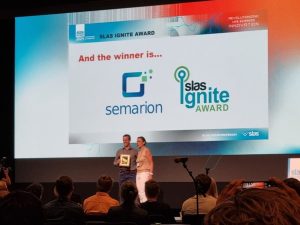
Semarion’s CEO Jeroen Verheyen accepting the SLAS Ignite Award
The prize for the most innovative start-up was won by the University of Cambridge spin-off Semarion (Cambridge, UK), exhibiting as a selected Innovation AveNEW company. True to the motto of the SLAS Ignite Award, Semarion’s SemaCyte platform promises real progress in drug development. The platform overcomes current limitations associated with adherent cell culture and assaying workflows by enabling small colonies of cells to be moved and frozen in their adherent state, without losing their morphology and function, which increases the volume of data collected per experiment and reduces the resource demands of in vitro drug discovery.
Together with Semarion, four companies with highly interesting platforms had qualified for the final of the Ignite Awards and presented their technologies at the conference:
Also part of Innovation AveNEW, Oria Bioscience (Paris, France), led by CEO Alexandre Santinho, presented a microfluidic platform for the screening of whole organelles, which allows for the testing of targets such as the lyso-resident protein for the treatment of lysosomal storage diseases in their native environment with a throughput of up to 50,000 compounds per week. Lucero Bio (Mölndal, Sweden), led by Co-Founder Christopher Jacklin, has developed a chip-based automated platform for cultivating, sorting and screening 3D spheroids/organoids. This promises to make the largely manual work involved in using human organoid models for lead optimization and metabolic profiling more reproducible, cost effective and manageable.
Addressing challenges in late sepsis diagnosis, Loop Diagnostics’ (Barcelona, Spain) CEO Enrique Hernandez discussed how the Company is using a new type of immune system response assay, called Septiloop, with 90% sensitivity, aiming to make diagnosis ten times faster and three times more effective than previous culture-based methods. Meanwhile, Sensific GmbH’s (Biberach an der Riß, Germany) CEO, Daniel Geiger, described how the Company’s add-on solution, ODIN, which is compatible with any commercial microscope, enables high-throughput, high-speed, assay-driven cell sorting by combining microfluidics with image-based analysis, cell sorting and microscopy.
Closing remarks
Between presentations, discussion groups, workshops, demos and product spotlights, SLAS Europe 2024 was a vibrant hub for innovation, fostering connections and the exchange of ideas among industry and academia alike. Looking ahead to the sixth European conference, SLAS Europe 2025 will take place in Hamburg, Germany – see you there!
The opinions expressed in this article are those of the author and do not necessarily reflect the views of BioTechniques or Taylor & Francis Group.
Submit to the F1000Research Cell & Molecular Biology Gateway
Take your cell and molecular biology research further with the F1000Research Gateway. Benefit from trusted publishing, open access, and transparent peer review to ensure your findings are shared responsibly and make a lasting impact. Share your discoveries with a global audience while maintaining full control over your work.
Submit your research today at F1000Research Cell & Molecular Biology Gateway.

